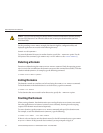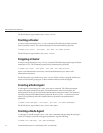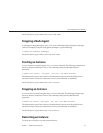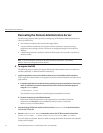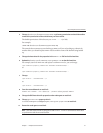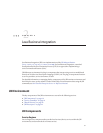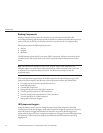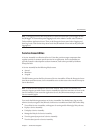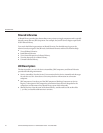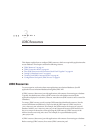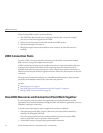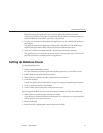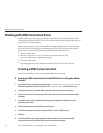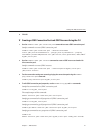
Binding Components
Binding Components are proxies for consumers or providers that are outside the JBI
environment. Binding components typically are based on a standard communications protocol,
such as FTP, JMS, or SMTP, or a call to an external service, such as SAP or WebSphere MQ.
JBI components have the following lifecyle states:
■
Started
■
Stopped
■
Shutdown
The JBI Runtime persists the life cycle states of JBI Components. When the server shuts down
and then restarts, JBI Components revert to their state at the time the Enterprise Server shut
down.
Note – The JBI runtime attempts to revert to the "desired" state of a JBI component. For
example, suppose you tried to start a JBI component but it did not start due to an error in the
component. If you restart the Enterprise Server, the JBI runtime attempts to start the
component again.
You can do the following operations on the JBI components. For detailed steps, log on to the
Admin Console, navigate to the JBI node, click Components and then click Online Help.
■
View JBI components by their specic lifestyle states.
■
Install JBI components.
■
Uninstall JBI components.
■
Manage the lifecycle states of the JBI Components.
■
View the general properties of a JBI Component.
■
View the conguration information for a JBI Component.
■
View the descriptor for a JBI Component.
■
Manage JBI Component Loggers.
JBI Component Loggers
Using the Admin Console, you can manage the log levels for JBI Components. Some JBI
Components provide several loggers while other components might not provide any. However,
there will always be a logger level displayed for the entire component. But the logger level
setting will only have an eect if a component implements its loggers based on the default name.
The provider of a JBI Component might provide additional documentation on specifying
logging levels.
JBIEnvironment
SunGlassFishEnterpriseServer2.1AdministrationGuide • December200840



